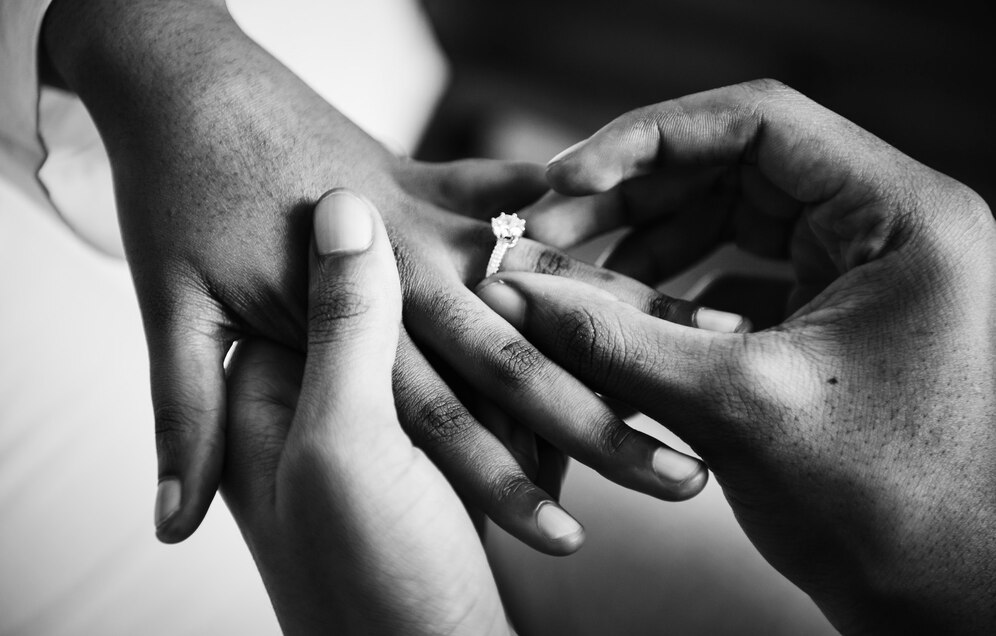
The Significance of Wedding Rings in Ghanaian Culture
Introduction
Wedding rings hold a special place in many cultures around the world, symbolizing love, commitment, and the eternal bond between spouses. In Ghanaian culture, these rings carry profound significance, deeply rooted in tradition and modern expressions of marriage. This blog explores the various meanings and customs associated with wedding rings in Ghana, highlighting their role in Ghanaian weddings and daily life.
Historical Background
In traditional Ghanaian culture, marriages were often marked by elaborate ceremonies and the exchange of gifts rather than rings. These ceremonies, rich with customs and rituals, celebrated the union of two families and communities. The introduction of wedding rings into Ghanaian culture is a relatively modern development, influenced by Western customs and Christianity.
Symbolism and Meaning
- Eternal Love and Commitment: Similar to many other cultures, in Ghana, the circular shape of the wedding ring symbolizes eternity, with no beginning or end, representing the infinite nature of love and commitment between the couple.
- Unity and Partnership: The exchange of rings during the wedding ceremony symbolizes the mutual agreement and partnership between the bride and groom. It signifies their willingness to share their lives and responsibilities as equals.
- Cultural Identity: In Ghana, wedding rings often reflect the cultural identity of the couple. Some couples choose rings that incorporate traditional Ghanaian symbols or are made from local materials, blending modern practices with cultural heritage.
The Role of Wedding Rings in Ghanaian Weddings
- Engagement Ceremony: The journey to marriage often begins with an engagement ceremony, known locally as the "knocking" or "kokooko" ceremony. During this event, the groom's family formally asks for the bride's hand in marriage. While this ceremony traditionally did not involve rings, contemporary practices may include the exchange of engagement rings.
- Wedding Ceremony: The main wedding ceremony is where the exchange of wedding rings takes center stage. This event is a grand affair, often combining traditional customs with modern elements. The couple exchanges rings as part of the church service or civil ceremony, witnessed by family and friends.
- Post-Wedding Significance: After the wedding, the rings continue to hold significant meaning. They are worn daily as a constant reminder of the vows taken and the love shared. In Ghanaian society, wedding rings are also a public symbol of one's marital status, respected and acknowledged by the community.
Cultural Variations and Personalization
- Traditional vs. Modern: Some couples prefer traditional ceremonies without rings, adhering strictly to age-old customs. Others embrace a more modern approach, incorporating rings and other contemporary elements into their wedding celebrations.
- Customized Rings: Ghanaian couples often personalize their wedding rings to reflect their unique love story and cultural heritage. This might include inscriptions of significant dates, names, or symbols that hold personal meaning.
- Material Choices: While gold and silver are popular choices, some couples opt for rings made from local materials like beads or Kente cloth patterns, adding a distinctive Ghanaian touch to their rings.
Conclusion
Wedding rings in Ghanaian culture symbolize more than just the union of two individuals; they represent a blend of tradition, love, commitment, and cultural identity. Whether incorporating traditional elements or embracing modern influences, these rings are a powerful testament to the enduring nature of marriage in Ghana. As Ghanaian couples continue to celebrate their love in diverse and meaningful ways, the significance of wedding rings remains a cherished aspect of their journey together.
